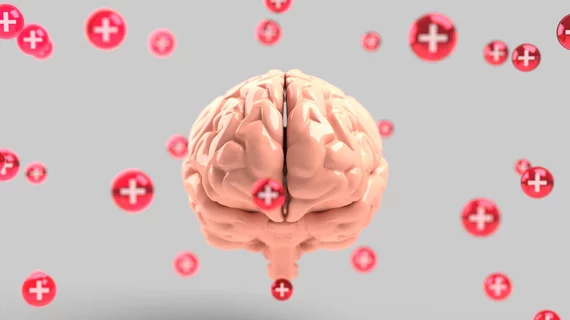Amyloid PET requirement is the latest controversy muddying historic Alzheimer’s drug approval
Controversy surrounding the recent approval of Biogen’s new Alzheimer’s drug has involved a whirlwind of resignations, pricing questions, and media attention. And that list now includes imaging.
Patients seeking treatment with Aduhelm (aducanumab) will require either an amyloid PET scan or lumbar puncture. Packing inserts also mandate individuals undergo a baseline MRI within one year before treatment and two additional scans prior to successive infusions.
But nuclear medicine and imaging advocates say amyloid positron emission tomography scans need to be the go-to option for initiating treatment. Especially given clinical trials tested the drug only in patients with a PET scan confirming the presence of brain amyloid.
Society of Nuclear Medicine & Molecular Imaging leadership met Wednesday, June 8, to discuss the imaging aspect of the historic drug approval, President Alan Packard, PhD, told Health Imaging.
While the organization quickly came out in support of the U.S. Food and Drug Administration’s historic decision, Packard said he was “extremely surprised” amyloid PET imaging wasn’t listed as a requirement.
“It’s strange this [approval] didn’t include that [an amyloid requirement] because the approval was based on amyloid scans,” Packard told Health Imaging.
The Alzheimer’s Association estimates nearly 6 million Americans are living with the disease and Biogen believes more than 1.5 million patients in the U.S. will be eligible to receive Aduhelm.
Packard said his big concern is wasting nuclear medicine’s limited resources on patients who won’t benefit from the drug. On the flip side, “we want to make sure that the drug does reach patients that it will benefit,” he added.
SNMMI put out a statement on June 9 indicating it plans to engage in talks with CMS to ensure amyloid PET scans are manded for treatment.
Though the Medical Imaging & Technology Alliance didn’t explicitly say the same thing when it came out in support of the approval on June 8, the leading imaging trade group did call on CMS to update its PET reimbursement policies.
Executive Director Patrick Hope specifically urged the administration to open the amyloid PET reconsideration request to ensure Medicare beneficiaries have access to such scans and diagnostic drugs.
Packard said SNMMI is generally in agreement with MITA on these issues and noted radiology has the perfect solution to ensure the correct patients receive Aduhelm, CMS just needs to act.
“I think we have a great opportunity here to match an imaging tool that pretty much addresses exactly the problem at hand,” he added. “They [CMS] just have to make sure it’s used effectively to address that problem.”

